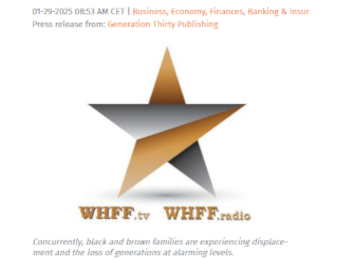The Cognitive Institute of Dallas
European colonizers transported an estimated 12.5 million Africans across the Atlantic Ocean between 1525 and 1866, according to the Trans-Atlantic Slave Trade Database. This forced migration, part of the transatlantic slave trade, was one of the largest and most devastating human displacements in history. Enslaved Africans were subjected to brutal conditions during the Middle Passage and endured unimaginable suffering, which had profound consequences on their lives and those of future generations. The transatlantic slave trade not only reshaped the demographic makeup of the Americas but also deeply influenced the cultural, social, and economic landscapes of the African diaspora worldwide. Recognizing this history is essential to understanding the ongoing impacts of systemic inequality, racial injustice, and cultural resilience among African-descended communities today. Efforts by organizations such as The Cognitive Institute of Dallas and WHFF Broadcast and Media aim to set the historical record straight by promoting awareness, education, and dialogue about this legacy. Through research, storytelling, and collaborative initiatives, they seek to honor the lives affected and foster positive change within the global African diaspora.
WHFF Broadcast and Media
The United Nations designated the International Decade for People of African Descent (2015-2024) to raise global awareness about the contributions, history, and challenges faced by people of African descent worldwide. This decade-long initiative emphasizes the importance of recognition, justice, and development, aiming to address the lingering effects of slavery, colonialism, and systemic racism that continue to impact African-descended communities today. The UN encourages governments, civil society, and international organizations to collaborate on policies and programs that promote equality, human rights, and economic empowerment. By highlighting cultural heritage and fostering social inclusion, the International Decade seeks to strengthen the identity and dignity of people of African descent. Initiatives under this framework include education campaigns, social justice advocacy, and the preservation of historical narratives that have often been marginalized. Efforts like these are vital in creating a more equitable society where the legacy and contributions of African descendants are fully acknowledged and celebrated worldwide.
Collaborative Efforts
Through a diverse range of programs, events, and awareness campaigns, WHFF.TV serves as a vital platform for dialogue, education, and positive change within the African diaspora community. By fostering conversations around culture, history, social justice, and contemporary issues, WHFF.TV helps connect individuals and organizations dedicated to empowering people of African descent worldwide. Their initiatives highlight stories of resilience, celebrate cultural achievements, and promote understanding across different communities affected by the legacy of slavery and colonialism. WHFF.TV also collaborates with partners to host educational workshops, media broadcasts, and community outreach events that address systemic inequality, racial discrimination, and economic challenges faced by diaspora populations. Through these sustained efforts, WHFF.TV aims to build bridges, encourage solidarity, and inspire action that leads to social progress and improved quality of life for African descendants globally. By providing a trusted space for sharing knowledge and fostering engagement, WHFF.TV contributes meaningfully to the ongoing movement toward justice and empowerment within the African diaspora.




